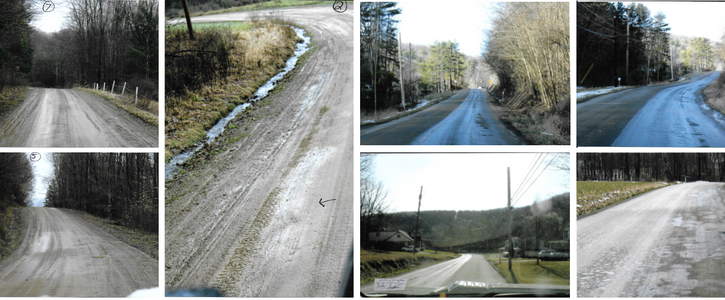25 signatures reached
To: Governor Josh Shapiro, PA Legislature
Toxic, Radioactive Drilling Waste Has No Place on PA Roads

Since the PA Department of Environmental Protection (DEP) put a moratorium on spreading toxic, radioactive drilling wastewater on PA's unpaved roads, conventional drillers have reported spreading 3.5 million gallons. "Reported" is the operative term because the DEP found that 86% of drillers in PA failed to file production and waste reports for 2023. That's up from the more than 50% who have failed to file for several years. All of this is happening against a backdrop of mounting scientific evidence of the dangers of the waste itself and of spreading it on our roads. Nobody can say where, when or how much of this toxic, radioactive waste has been spread. Stop tolerating the industry's non-compliance with even the most basic reporting requirements and its defiance of a moratorium. The DEP has demonstrated that it cannot manage dangerous waste, so it is up to you, our elected officials, to declare an outright ban on all road spreading in Pennsylvania.
Why is this important?
This petition will be delivered with the letter below. As of this writing, more than 50 organizations and 70 individuals have signed it. If you would like add your organizations to the letter, please visit https://docs.google.com/forms/d/e/1FAIpQLSehxDE1egWy-bj2OBwGm1urZg363IfUYhj_DeMP4zZuZZzcLA/viewfor
The letter opens,
Dear Governor Shapiro, Legislators,
In written testimony on road spreading of conventional drilling wastewater the DEP submitted to the Senate Democratic Policy Committee, the agency said that “if a valid coproduct determination can be made that adequately compares brine to a commercially available product, even if it may not be as effective as other road-spreading products, it’s possible that oil and gas waste brine may continue to be spread as a dust suppressant. [emphasis added]” Given the scientific evidence of the danger road spreading poses, as well as the inability of the agency to manage oil and gas waste, continued road spreading is unacceptable. The undersigned organizations and individuals are calling for an outright ban on road spreading of all oil & gas waste in the Commonwealth.
In 2022, the DEP issued a report ordered by Governor Wolf evaluating the agency’s oversight of the conventional drilling industry in Pennsylvania that declared, “A significant change in the culture of non-compliance as an acceptable norm in the conventional oil and gas industry will need to occur before meaningful improvement can happen.” The remark was based, in part, on shocking statistics that indicated that fewer than half of the conventional drillers operating in the state had filed production and waste reports in the previous five years. The yearly percentages told an even worse story. The rate of non-compliance was trending upward from 53.7% in 2017 to 61.8% in 2021. It was no surprise in March when Kurt Klapkowski told the House Environmental Resources and Energy Committee that the figure for 2023 had risen to 86%.
When a moratorium on road spreading of conventional drilling waste was imposed in 2018, some companies continued the practice by claiming a loophole in a program managed by the Bureau of Waste Management called the Coproduct program. Some of those drillers continued to report road spreading in their annual waste reports, so we know that at least 3.5 million gallons of highly toxic, radioactive drilling waste has been disposed of on our roads in the past six years. Given the degree of non-compliance, the amount that has gone unreported is surely much higher.
Read the full letter at https://docs.google.com/forms/d/e/1FAIpQLSehxDE1egWy-bj2OBwGm1urZg363IfUYhj_DeMP4zZuZZzcLA/viewform
Photo credit: PA Environment Digest
The letter opens,
Dear Governor Shapiro, Legislators,
In written testimony on road spreading of conventional drilling wastewater the DEP submitted to the Senate Democratic Policy Committee, the agency said that “if a valid coproduct determination can be made that adequately compares brine to a commercially available product, even if it may not be as effective as other road-spreading products, it’s possible that oil and gas waste brine may continue to be spread as a dust suppressant. [emphasis added]” Given the scientific evidence of the danger road spreading poses, as well as the inability of the agency to manage oil and gas waste, continued road spreading is unacceptable. The undersigned organizations and individuals are calling for an outright ban on road spreading of all oil & gas waste in the Commonwealth.
In 2022, the DEP issued a report ordered by Governor Wolf evaluating the agency’s oversight of the conventional drilling industry in Pennsylvania that declared, “A significant change in the culture of non-compliance as an acceptable norm in the conventional oil and gas industry will need to occur before meaningful improvement can happen.” The remark was based, in part, on shocking statistics that indicated that fewer than half of the conventional drillers operating in the state had filed production and waste reports in the previous five years. The yearly percentages told an even worse story. The rate of non-compliance was trending upward from 53.7% in 2017 to 61.8% in 2021. It was no surprise in March when Kurt Klapkowski told the House Environmental Resources and Energy Committee that the figure for 2023 had risen to 86%.
When a moratorium on road spreading of conventional drilling waste was imposed in 2018, some companies continued the practice by claiming a loophole in a program managed by the Bureau of Waste Management called the Coproduct program. Some of those drillers continued to report road spreading in their annual waste reports, so we know that at least 3.5 million gallons of highly toxic, radioactive drilling waste has been disposed of on our roads in the past six years. Given the degree of non-compliance, the amount that has gone unreported is surely much higher.
Read the full letter at https://docs.google.com/forms/d/e/1FAIpQLSehxDE1egWy-bj2OBwGm1urZg363IfUYhj_DeMP4zZuZZzcLA/viewform
Photo credit: PA Environment Digest
